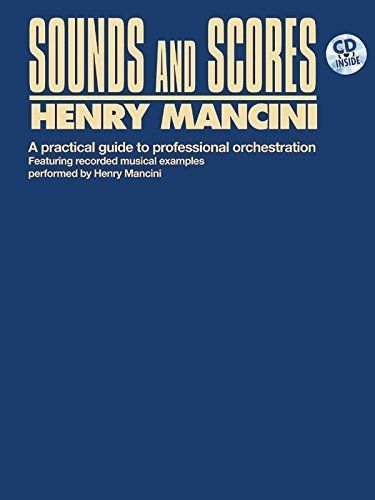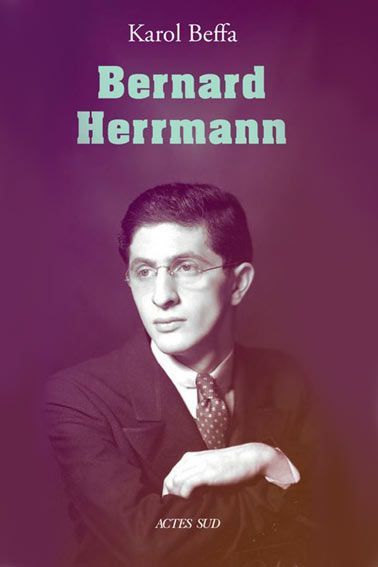In order of year of publication
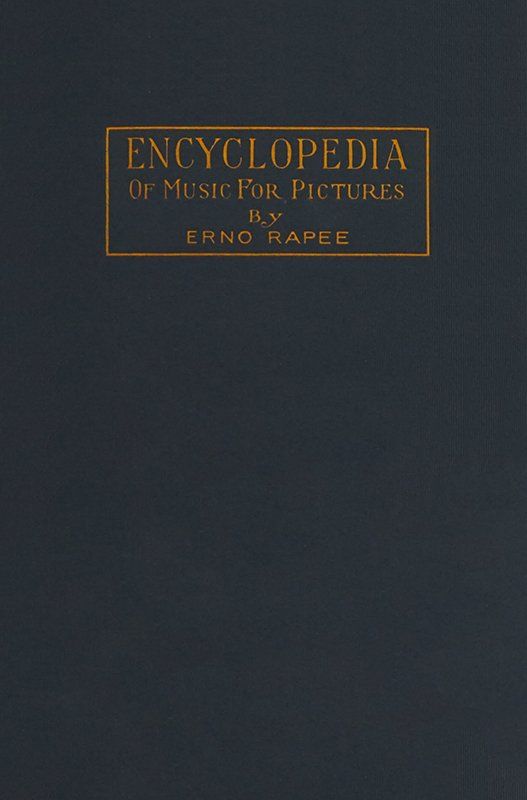
Encyclopedia of Music for Pictures
Author: Erno Rapee
Publisher: New York: Belmont, 1925
Reprinted in New York by Arno Press, 1970
A list of some 10,000 pieces (titles, composers, and publishers) organized by theme; with brief introductory discussion on putting together an orchestra, organizing a music library, and how to approach compiling film scores.
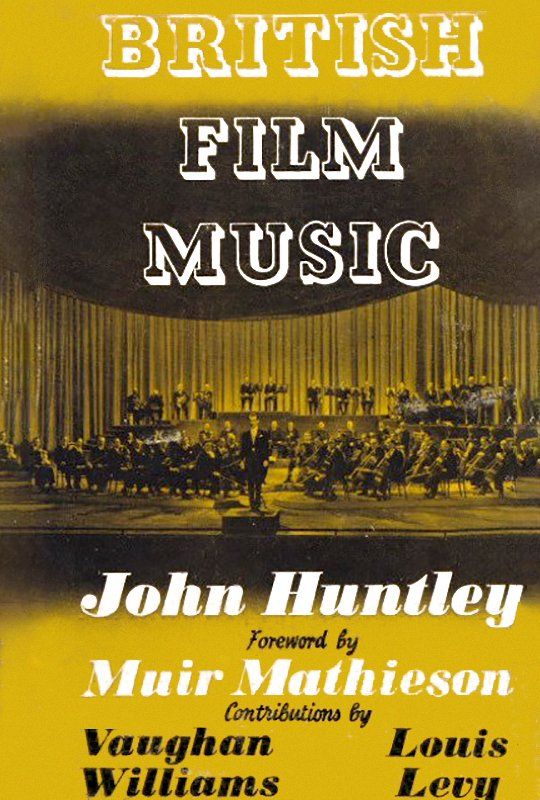
British Film Music
Author: John Huntley
Publisher: London: Skelton Robinson, 1947
Reprinted in New York by Arno Press, 1972
A complete survey of Film Music in Great Britain from the earliest days of the silent picture to the present day -- how it all began, the films that mark the milestones along the road of development, a meeting with the composers, musical directors, sound engineers and orchestral players.
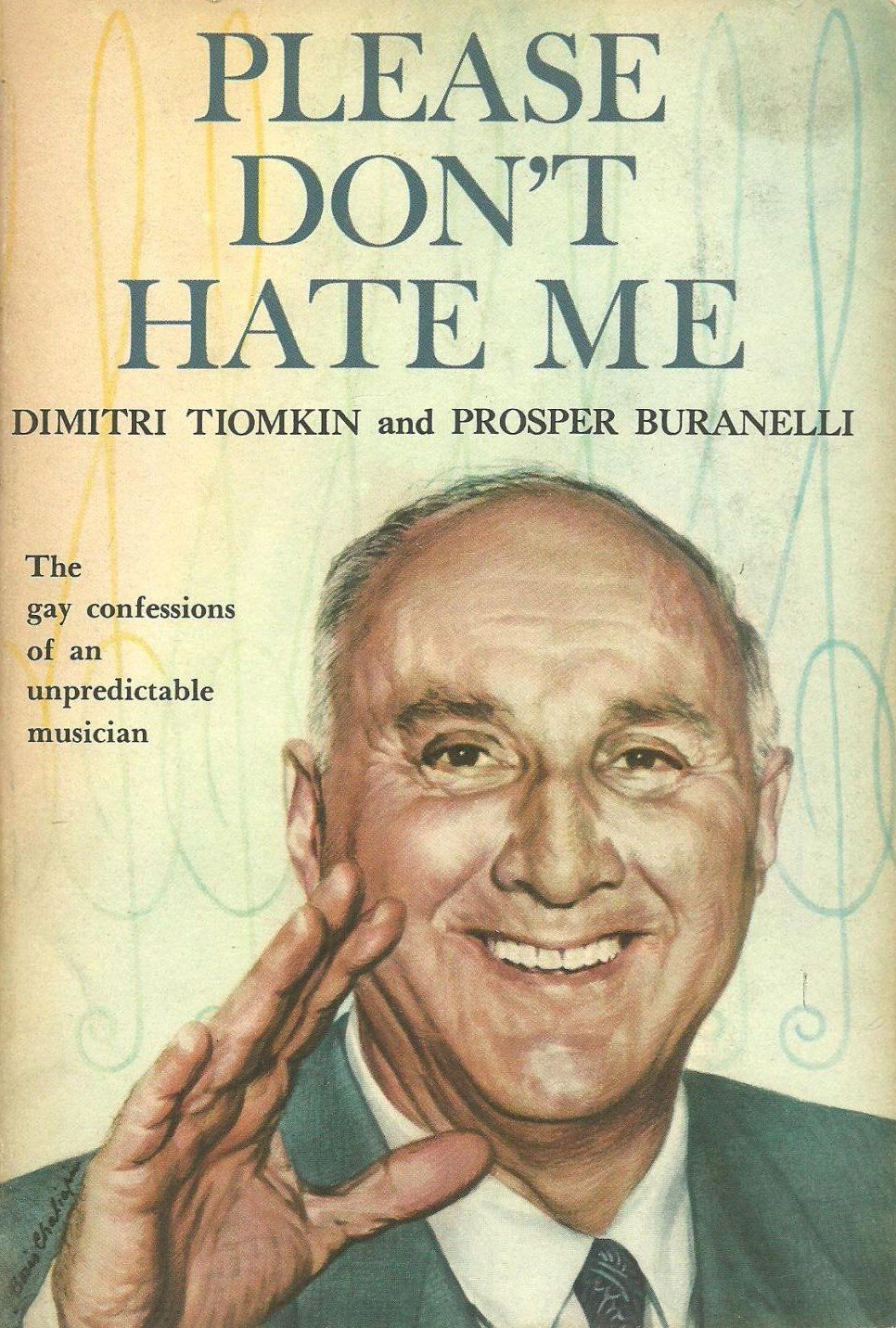
Please Don’t Hate Me
Author: Dimitri Tiomkin; Prosper Buranelli
Publisher: New York : Doubleday, 1959
In his autobiography Dimitri Tiomkin offers this sober assessment of his talent, "I could never have been a Beethoven, Chopin, or Wagner... had I devoted myself to composition in the concert field I think I might have been as good as Rachmaninov... I've gone over to the technology of motion pictures, music for the masses, music for the machine in an age of machines."
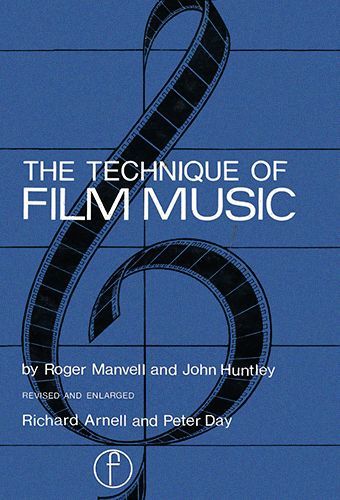
The Technique of Film Music
Author: Roger Manvell; John Huntley
Publisher: Focal Press, 2nd edition 1975
The Technique of Film Music is addressed to everyone interested in film, as well as to composers and professional film-makers. The art of composing music for films has too long been taken for granted, yet today films depend considerably on music for their emotional effect. The history of film music is traced from the early piano accompaniment by means of “mood music” for silent films to the establishment of the modern specially-composed orchestral score.
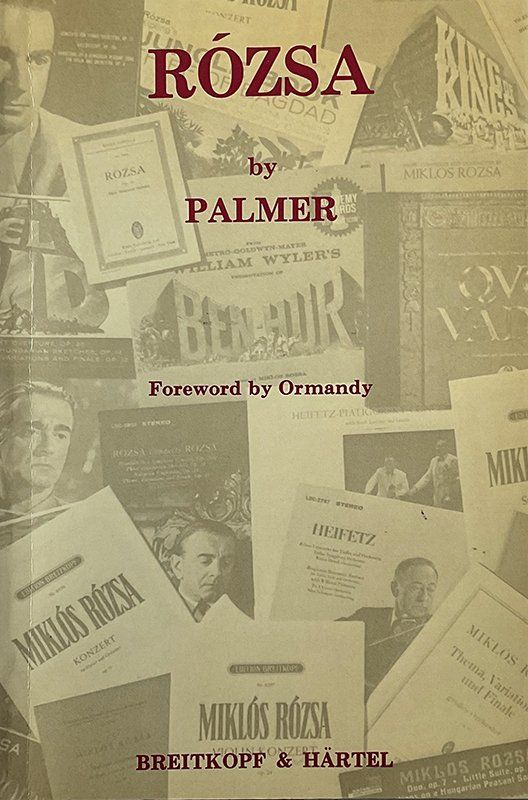
Miklós Rózsa: A Sketch of His Life and Work
Author: Christopher Palmer
Publisher: London : Breitkopf & Härtel, 1975
Christopher Palmer's monograph describes Rozsa's life in outline, often relying on statements obtained from personal interviews. There is a chapter devoted to 'Perspectives', containing general descriptions of his musical life and the attitudes on music which shaped his compositions both for the public at large in the cinema and forthe music lover in the concert
hall. The most interesting section of Palmer's book is the one dealing specifically with the music, divided into
Concert Music and
Film Music.
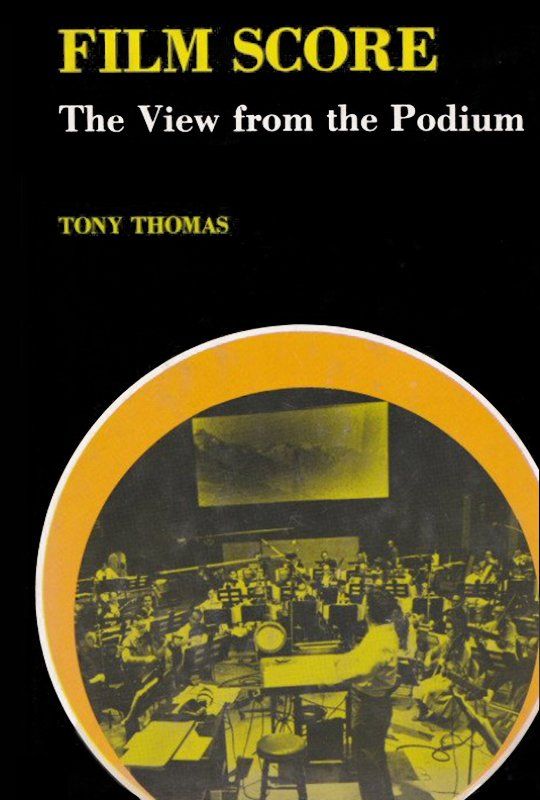
Film Score: The View from the Podium
Author: Tony Thomas
Publisher: South Brunswick and New York: A. S. Barnes & Co., 1979
Devoting most of his preface to issues that relate to writing music for movies. Tony Thomas makes only one statement about
Film Score: “The purpose of this book is to state the case for the film composer and his craft.“ Twenty chapters follow on twenty well-known composers. Each of these chapters has two parts: a brief biographical sketch and overview of the composer's contributions to film music, followed by the composer's views on aspects of the composing or the functioning of film music. - Claudia Gorbman
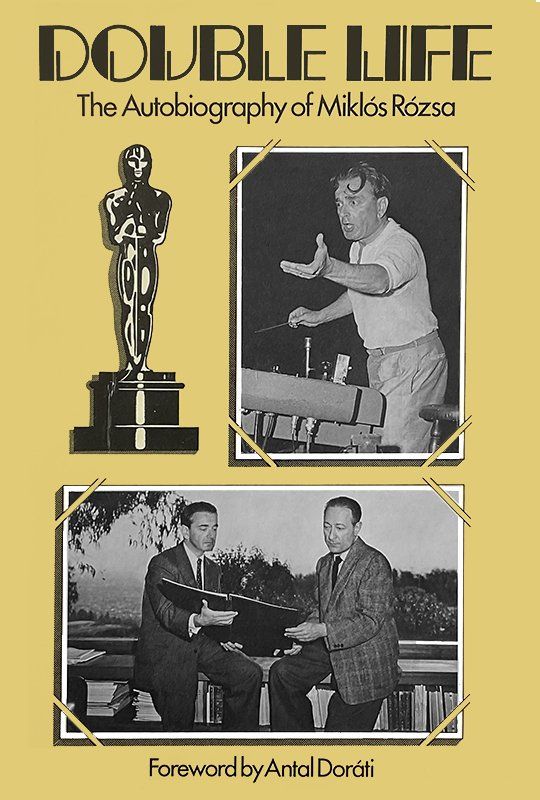
A Double Life: The Autobiography of Miklós Rózsa
Author: Miklós Rózsa
Publisher: Tunbridge Wells, Kent : Midas Books ; New York : Hippocrene Books, 1982
Like all classical composers, the young Miklós Rózsa faced the problem of how to make a living writing serious music. At the suggestion of famed French composer Arthur Honegger, he turned to film music, and thus began a “double life.“' Well-known for his movie scores, Rózsa has also written numerous classical works that have been performed by major orchestras the world over. In this straightforward autobiography he chronicles his rise to success, from his childhood in a small Hungarian town to the film studios of Hollywood.
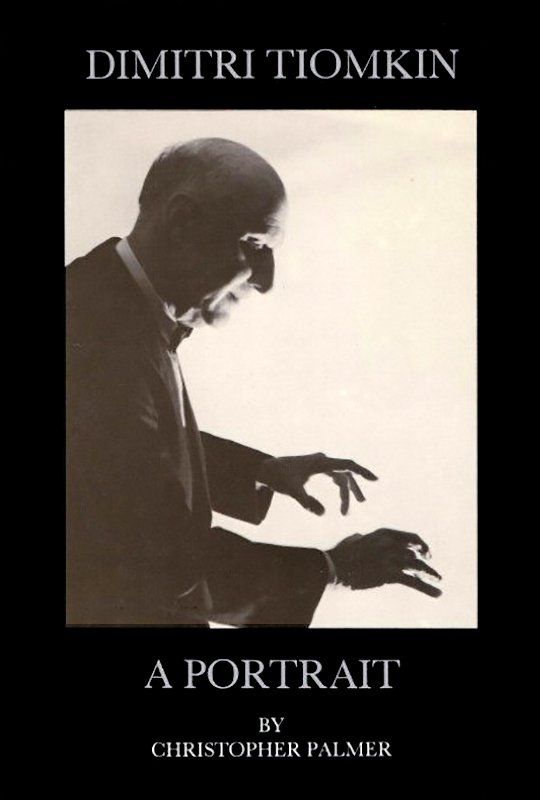
Dimitri Tiomkin: A Portrait
Author: Christopher Palmer
Publisher: London : T.E. Books, 1984
Dimitri Tiomkin: A Portrait
is a highly readable biography of this remarkable Russian-born composer who made his mark on American film music. Christopher Palmer’s book is in three parts, with a biographical chronology, historical perspective, and a discussion of Tiomkin’s landmark scores, such as
High Noon, the
Hitchcock trilogy, and
The Fall of the Roman Empire. Principal awards, honors, and a filmography round out the book.
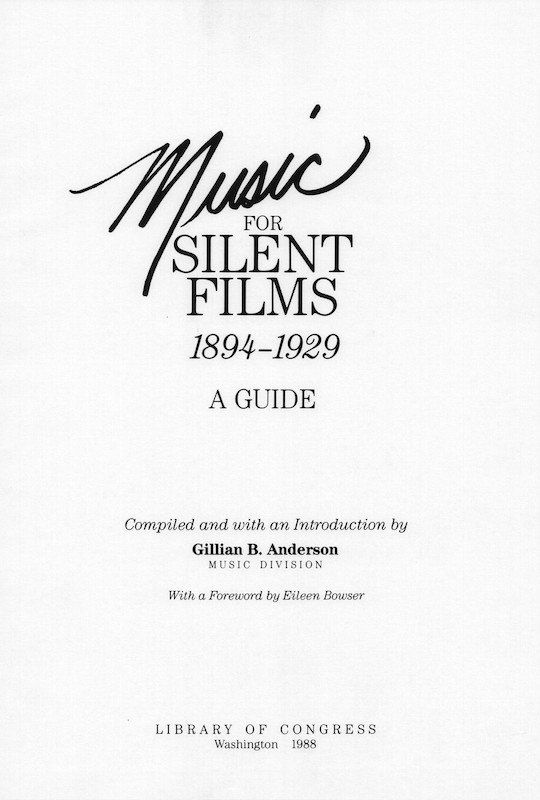
Music for Silent Films, 1894-1929: A Guide
Author: Gillian B. Anderson
Publisher: Washington, D.C. : Library of Congress, 1988
Gillian Anderson's
Music for Silent Films provides valuable help to the film music scholar in that large amounts of original source material from the silent era are now made infinitely more accessible. The bulk of her book consists of an alphabetical listing of 1047 silent movies. Each entry refers to material - scores, cue sheets (mainly thematic), incipits, etc. - used in connection with a silent film produced between 1894 and 1929 and stored, the vast majority on microfilm, at the Library of Congress. -
Philip Tagg
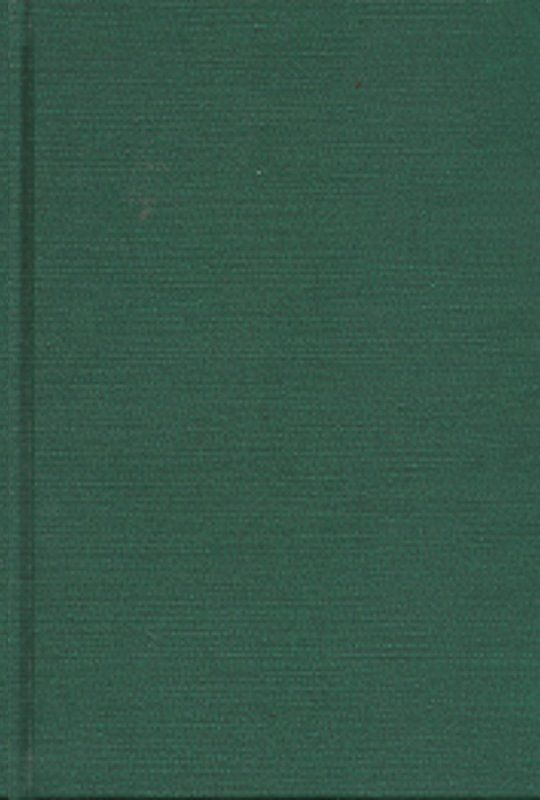
Film Music 1
Author: Edited, with an introduction by Clifford McCarty
Publisher: New York: Garland Publishing, Inc, 1989
Editor Clifford McCarty has assembled
Film Music 1, an anthology of recent, previously unpublished articles, essays, score analyses, interviews, and memoirs about Hollywood film music of both the sound and silent eras. In what promises to be the first in a series of similar volumes, McCarty has chosen writings that cover a fairly representative mixture of film music topics. Music librarian H. Stephen Wright discusses the need for institutions to preserve and catalog Hollywood film scores and related material. - Eric Beheim
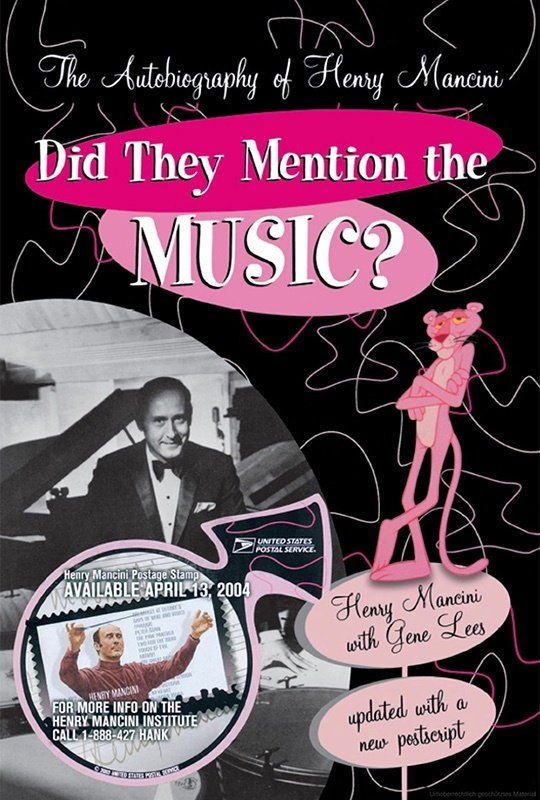
Did They Mention the Music?
Author: Henry Mancini and Gene Lees
Publisher: Chicago: Contemporary Books, 1989
In a career that lasted over thirty years, Mancini amassed twenty Grammy awards and more nominations than any other composer. In his memoir, written with jazz expert Lees, Mancini discusses his close friendships with Blake Edwards, Julie Andrews, and Paul Newman, his professional collaborations with Johnny Mercer, Luciano Pavarotti, and James Galway, and his achievements as a husband, father, and grandfather.
Read a review
by
Randall D. Larson
...
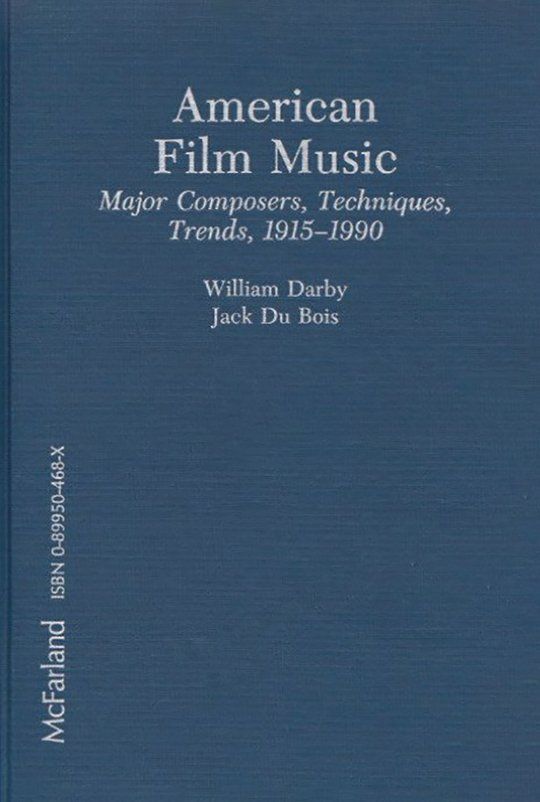
American Film Music: Major Composers, Techniques... 1915-1990
Author: William Darby and Jack Du Bois
Publisher: Jefferson, North Carolina : McFarland & Compnay, Inc., 1990
The book includes discussion of trend-setting work such as Max Steiner's King Kong (1933--an early instance of music carrying a significant portion of onscreen action), Bernard Herrmann's Psycho (1960, with its unusual, high, scraping strings-only support of the famous shower scene), and Alex North's A Streetcar Named Desire (1951--the first essentially jazz-oriented score), as well as remarks on the work that followed within the resulting trends.
b
Read a review
by
Randall D. Larson
...
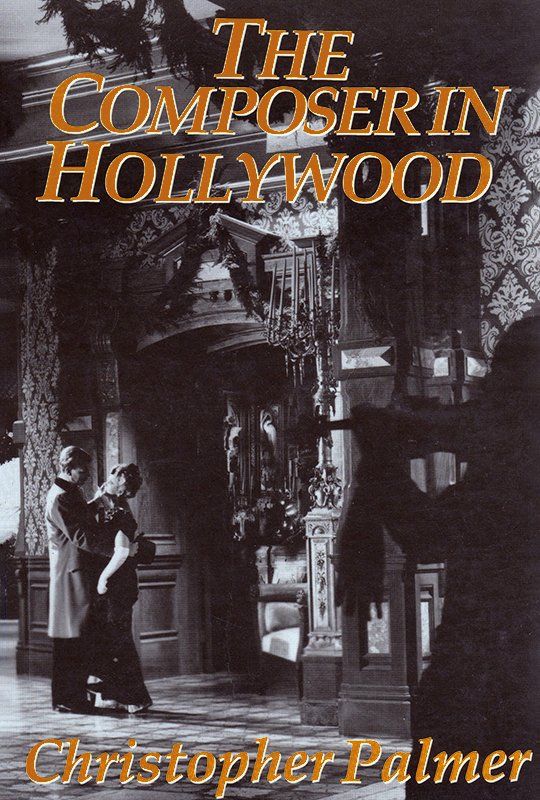
The Composer in Hollywood
Author: Christopher Palmer
Publisher: London; New York : Marion Boyars, 1990
Christopher Palmer discusses the life and work of eleven great Hollywood composers-Steiner, Korngold, Newman, Waxman, Tiomkin, Webb, Rozsa, Herrmann, North, Bernstein and Rosenman - analyzing the scores of many well-known or remarkable films, almost scene by scene. Each chapter is written in clear non-technical language for the general reader as well as film and music enthusiasts.
Read a review
by
Doug Raynes ...
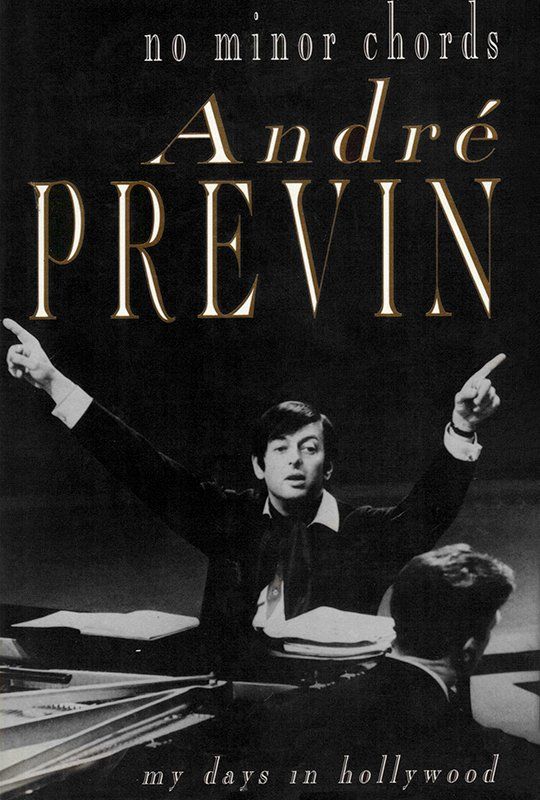
No Minor Chords: My Days in Hollywood
Author: André Previn
Publisher: London & New York: Doubleday, 1991
André Previn arrived in Hollywood at the age of seventeen, classically trained, immensely talented, but unskilled in the art of filmmaking. His rise, however, was meteoric as he fashioned the scores of an astonishing variety of films. With infectious warmth and wit, Previn brings to life the last years of Hollywood's Golden Age, when films were lavish, stars were larger than life and studio heads ruled like feudal barons.
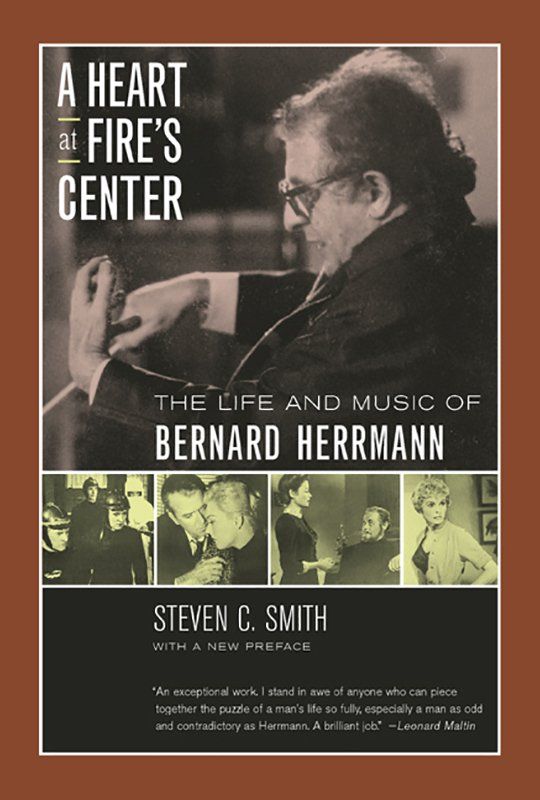
A Heart at Fire’s Center: The Life and Music of Bernard Herrmann
Author: Steven C. Smith
Publisher: Berkeley & Los Angeles : California University Press, 1991, 2002
No composer contributed more to film than Bernard Herrmann, who in over 40 scores enriched the work of such directors as Orson Welles, Alfred Hitchcock, François Truffaut, and Martin Scorsese. In this first major biography of the composer, Steven C. Smith explores the interrelationships between Herrmann's music and his turbulent personal life, using much previously unpublished information to illustrate Herrmann's often outrageous behavior.
Read a review
by
Doug Raynes ...
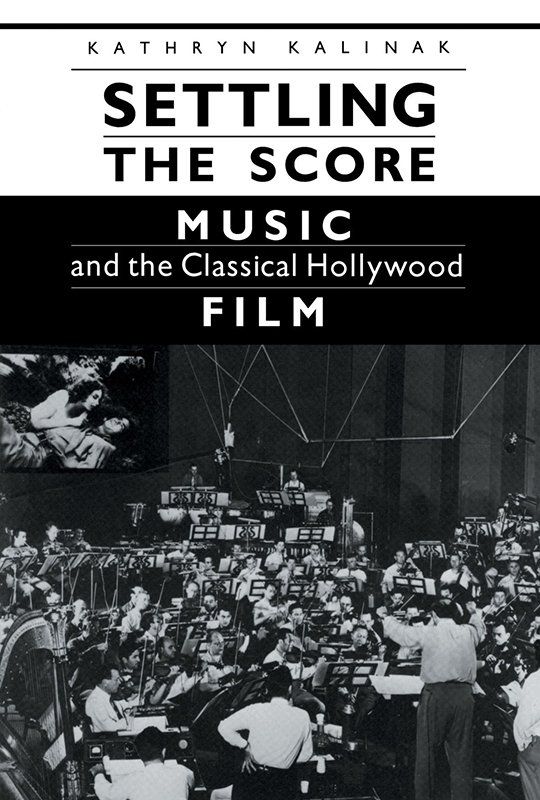
Settling the Score: Music and the Classical Hollywood Film
Author: Kathryn Kalinak
Publisher: University of Wisconsin Press, 1992
Kathryn Kalinak places film scores in a historical context focusing on Erich Korngold's score for Captain Blood (1939). She then analyzes various film scores: Max Steiner's The Informer (1935), Bernard Herrmann's The Magnificent Ambersons (1942), David Raskin's Laura (1944), and finally John Williams's The Empire Strikes Back (1980). This major work on scoring goes a long way toward proving the importance of music in film. - Sherle Abramson
Read a review
by
Doug Raynes ...
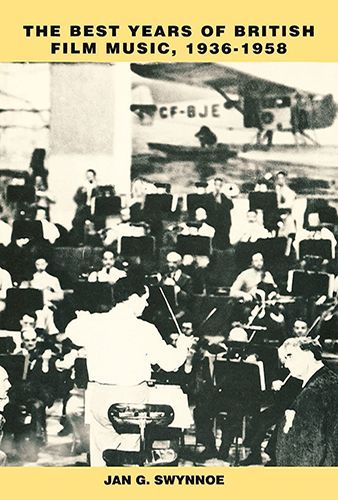
The Best Years of British Film Music, 1936-1958
Author: Jan G. Swynnoe
Publisher: Boydell & Brewer, 2002
A study of the British contribution to film music, detailing the idiosyncracies of British film. Jan Swynnoe's study is concerned with the special British contribution to film music, detailing how the idiosyncracies of British film, and of the British character, set it apart from its Hollywood counterpart. She shows how the differences between the two industries in all aspects of film making variously affected composers on both sides of the Atlantic.
Read a review
by
Ian Lace ...
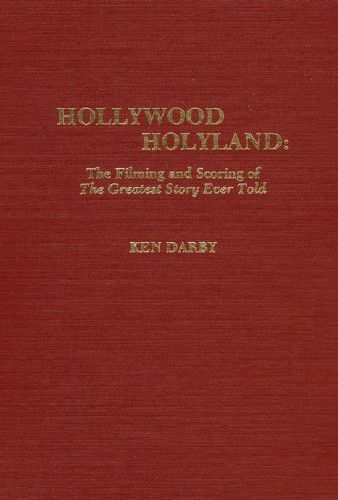
Hollywood Holyland
Author: Ken Darby
Publisher: The Scarecrow Press, Inc., 1992
The Filming and Scoring of The Greatest Story Ever Told. Alfred Newman’s score for The Greatest Story Ever Told is regarded by many film music commentators as his finest achievement. Unfortunately, due to the interference and dictates of producer/director George Stevens and his production associates, the music ended up as a pale shadow of Newman’s original conception.
b
Read a review
by
Doug Raynes ...
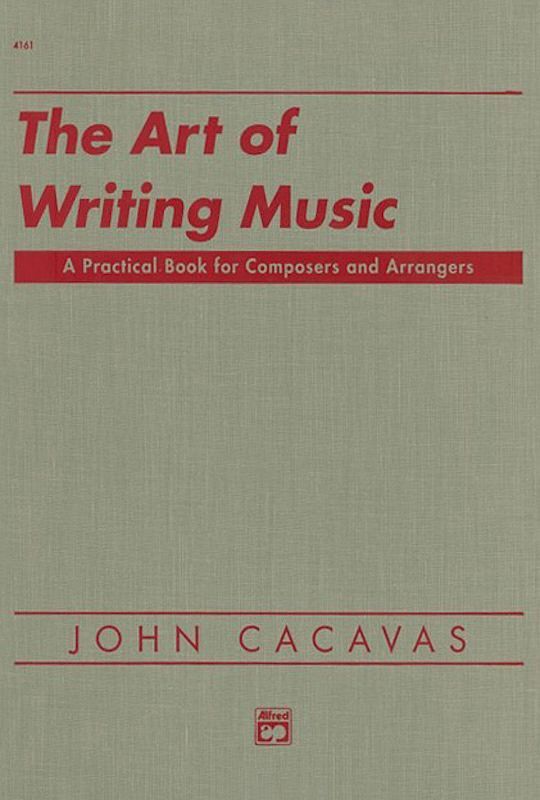
The Art of Writing Music
Author: John Cacavas
Publisher: Alfred Publishing Co., Inc.,1993
John Cacavas has written an extensive book on the techniques of composing, orchestrating and arranging. Includes chapters on each section of the band and orchestra, voicing techniques as well as special chapters on concert band writing, choral writing, electronic applications and writing for film and television.
Read a review
by
Randall D. Larson
...
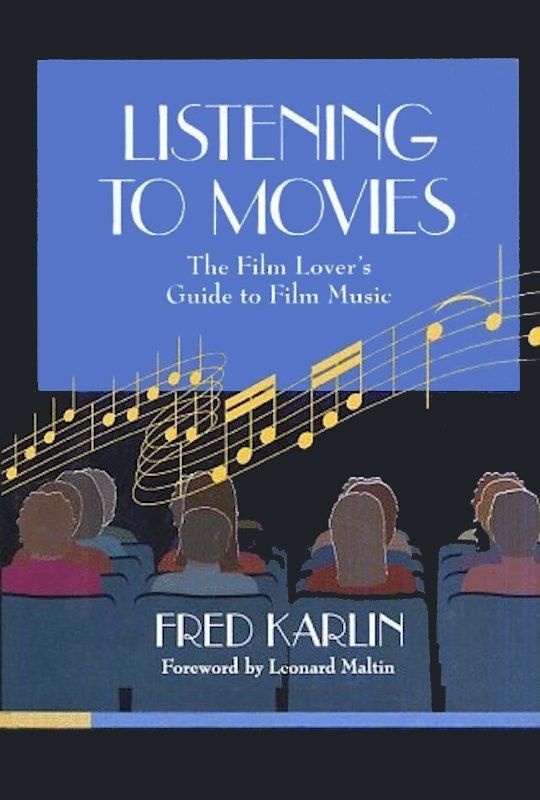
Listening to Movies: The Film Lover’s Guide to Film Music
Author: Fred Karlin
Publisher: New York: Schirmer, 1994
Listening to Movies reveals not only how film music is made but how it can be crucial in establishing tone, setting a pace, and involving the audience. Through numerous examples, Karlin helps the reader to understand and appreciate exactly how the music on the soundtrack enhances the movies we see. Here are just a few of the other perspectives this book provides: a unique cue-by-cue breakdown of the music for eight classic movies...
Read a review
by
Randall D. Larson
...
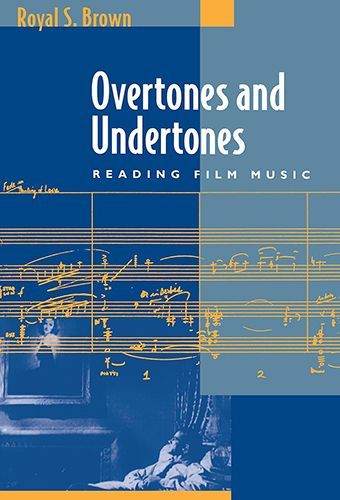
Overtones and Undertones: Reading Film Music
Author: Royal S. Brown
Publisher: University of California Press, 1994
Unlike earlier books, which offered historical, technical, and sociopolitical analyses, Overtones and Undertones draws on film, music, and narrative theory to provide the first comprehensive aesthetics of film music. Focusing on how the film/score interaction influences our response to cinematic situations, Brown traces the history of film music from its beginnings, covering both American and European cinema.
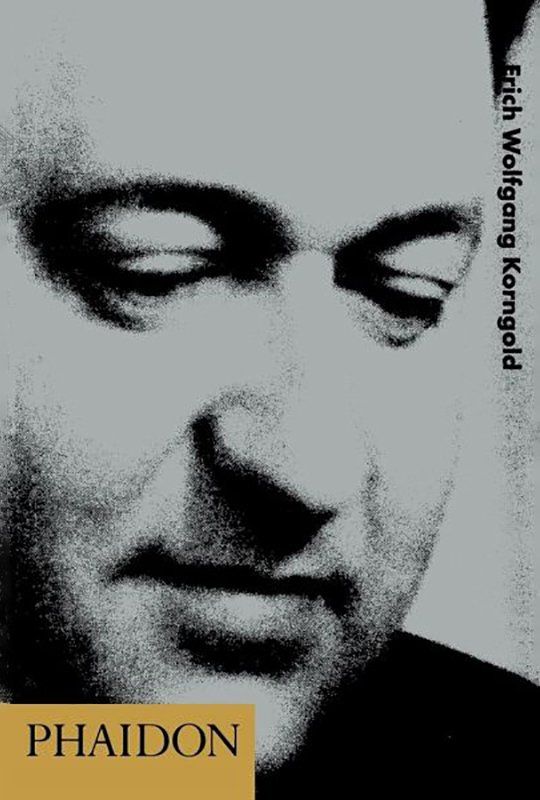
Erich Wolfgang Korngold (20th-century composers)
Author: Jessica Duchen
Publisher: London: Phaidon, 1996
This colourful biography explores the life and music of Erich Wolfgang Korngold (1897–1957), whose varied compositions ranged from operas (written at a very young age) and orchestral music to lighter works such as operettas and Hollywood film scores. Korngold’s lush, romantic scores have influenced many other film composers, while a recent resurgence of interest in his work has lent greater credibility to his more serious classical compositions.
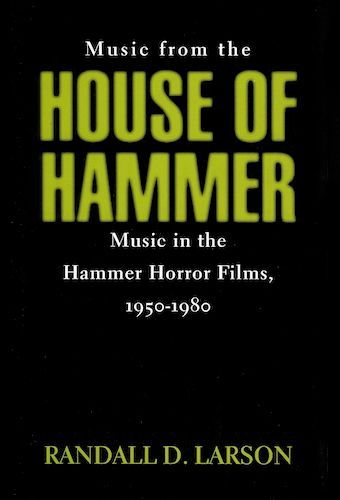
Music from the House of Hammer
Music in the Hammer Horror Films, 1950-1980
Author: Randall D. Larson
Publisher: Scarecrow Press, 1996
Hammer films had a unique sound. For although the studio was small and the budgets limited, those involved in making the Hammer films recognized that the musical score was just as important as the set, the actors, and the script in telling the story. Consequently, Hammer Films Productions recruited the best musical talent to make its films come alive.
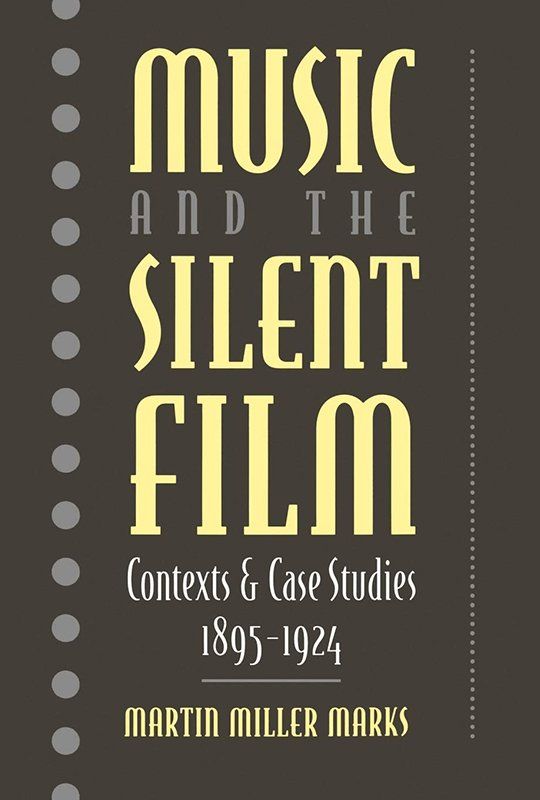
Music and the Silent Film: Contexts and Case Studies, 1895-1924
Author: Martin Miller Marks
Publisher: New York : Oxford University Press, 1997
In this book, a leading authority on film music examines scores of the silent film era. The first of three projected volumes investigating music written for films, this thoughtful and pathbreaking study demonstrates the richness of silent film music as it details the way in which scores were often planned from the start as an integral part of the whole cinematic experience.
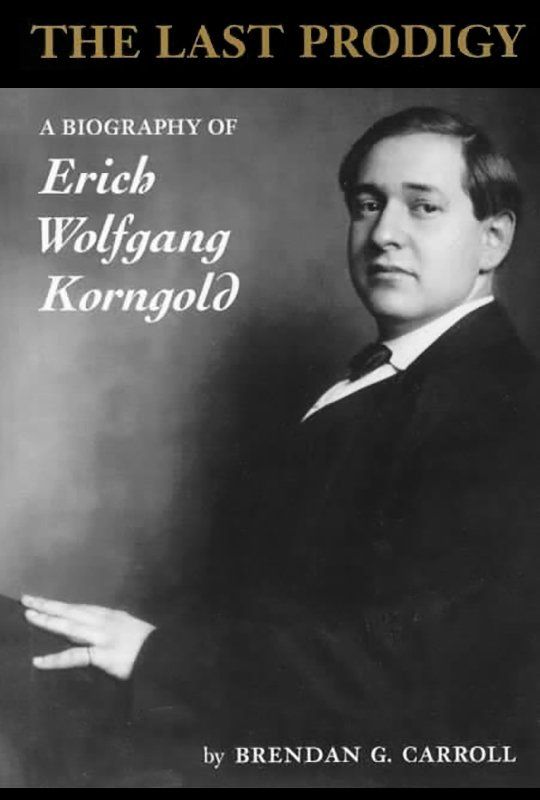
The Last Prodigy: A Biography of Erich Wolfgang Korngold
Author: Brendan G. Carroll
Publisher: Portland : Amadeus Press, 1997
This first full-length biography chronicles Korngold's life and works from his days as a celebrated Wunderkind in imperial Vienna, through his spectacular career as a composer of opera and symphonic works, to his escape from and Nazis to America, where he pioneered the symphonic film score and won two Oscars. The author provides a richly detailed evaluation of the composer.
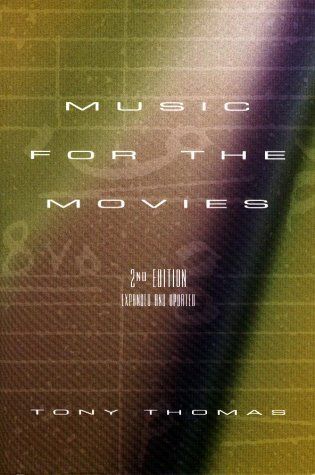
Music for the movies
Author: Tony Thomas
Publisher: Los Angeles : Silman-James Press, 1997
Edition: 2nd ed., expanded and updated
Film music fans have eagerly awaited this fully updated and greatly expanded edition of Tony Thomas's popular history of Hollywood film music (from the thirties through the nineties).
It discusses the life, work and influence of Alfred Newman, Victor Young, Aaron Copland, Franz Waxman, Miklos Rozsa, Max Steiner, Henry Mancini and others.
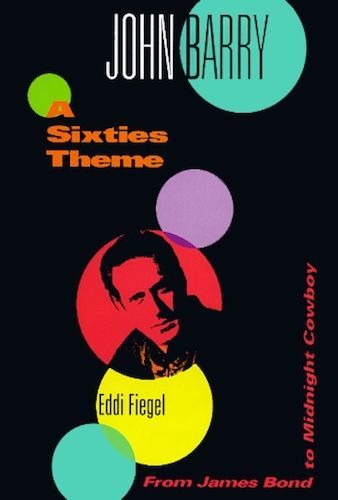
John Barry: A Sixties Theme
Author: Eddi Fiegel
Publisher: Constable, 1998
John Barry´s career reflects the evolution of post-war British music from big band to rock and roll and the birth of pop. In the cultural foment of ´Swinging Sixties´ London he became an iconic figure and an inspiration to countless musicians. Written with Barry´s cooperation and including insights from close friends, Eddi Fiegel's John Barry: A Sixties Theme celebrates a life of stunning creativity, and reveals how John Barry came to write his music and why.
Read a review
by
Stephen Woolston
...
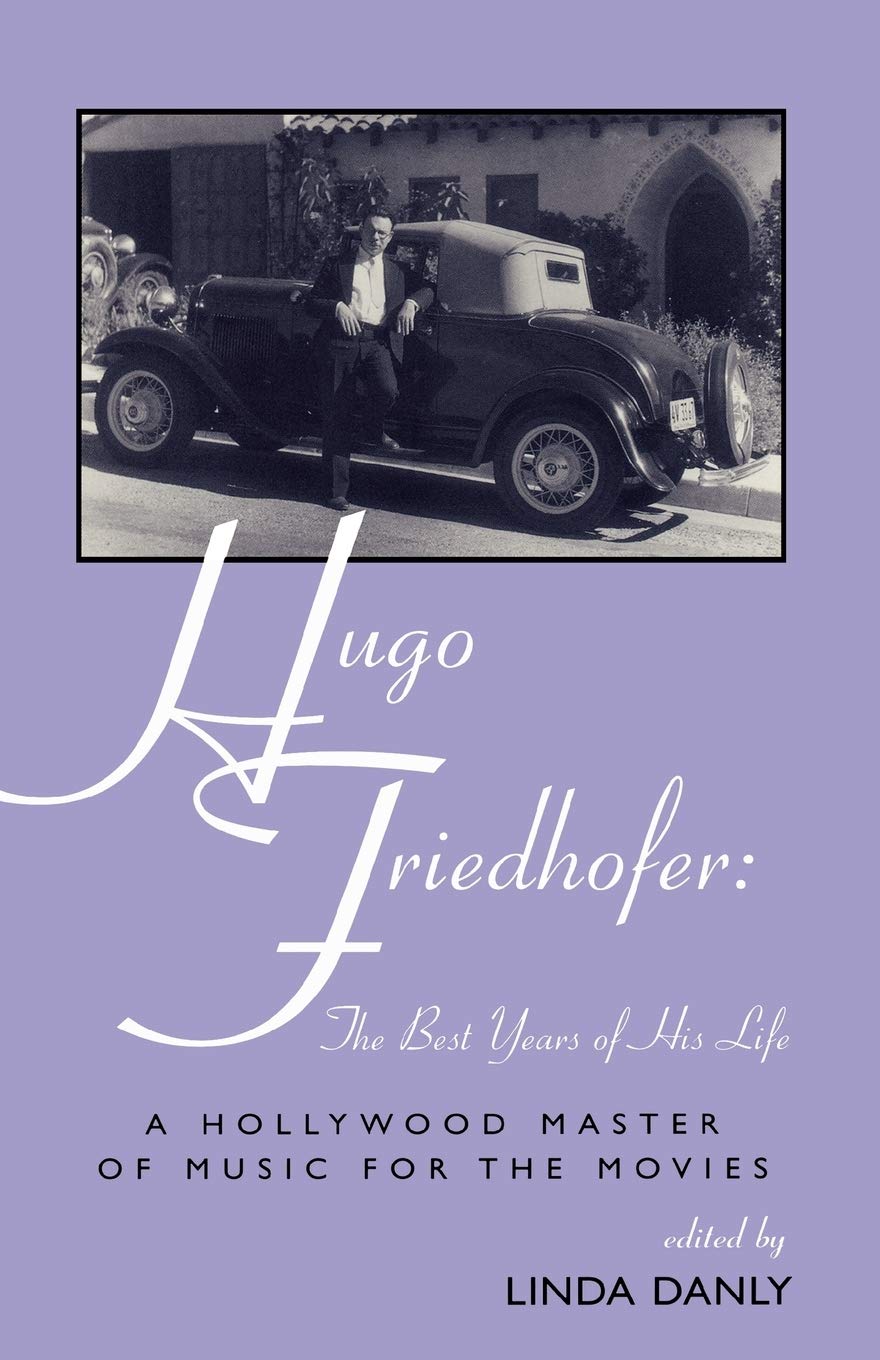
Hugo Friedhofer: The Best Years of His Life
Author: Linda Danly
Publisher: Lanham, Md. : Scarecrow Press, 2002
A survey of the impressive career of Hugo Friedhofer, composer for Hollywood movies. His life is examined through essays, personal letters, and interviews with film historians and friends of the composer, but the largest contribution is by Friedhofer himself in the form of an oral history.
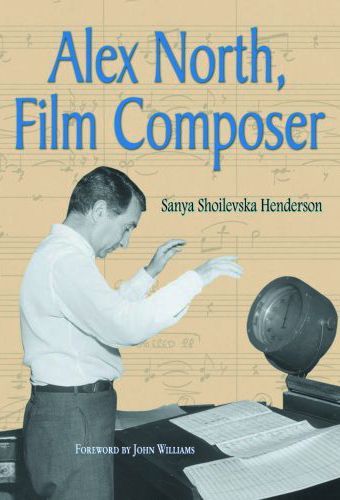
Alex North, Film Composer
Author: Sanya Shoilevska Henderson; John Williams (Foreword)
Publisher: McFarland & Company, 2003
Alex North's life and work are the focus of this book. The first part deals with his early life growing up in Chester, Pennsylvania, and Philadelphia, his studies at Juilliard in New York and in Russia and Mexico, his early experiences in modern dance, documentaries, and theater, and his major work in film. The second part contains detailed analyses of the musical scores that North composed for A Streetcar Named Desire, Spartacus, The Misfits, Under the Volcano, and Prizzi's Honor.
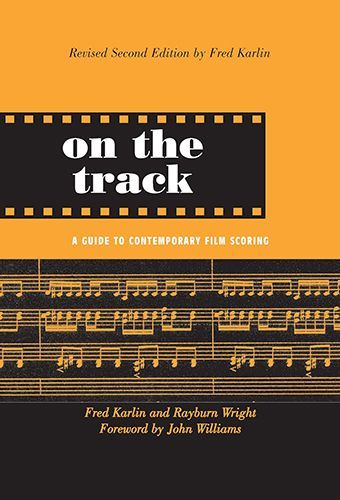
On the Track: A Guide to Contemporary Film Scoring
Author: Fred Karlin; Rayburn Wright; John Williams (Foreword)
Publisher: Routledge, 2004
On the Track offers a comprehensive guide to scoring for film and television. Covering all styles and genres, the authors, both noted film composers, cover everything from the nuts-and-bolts of timing, cuing, and recording through balancing the composer's aesthetic vision with the needs of the film itself. Unlike other books that are aimed at the person "dreaming" of a career, this is truly a guide that can be used by everyone from students to technically sophisticated professionals. It contains over 100 interviews with noted composers...
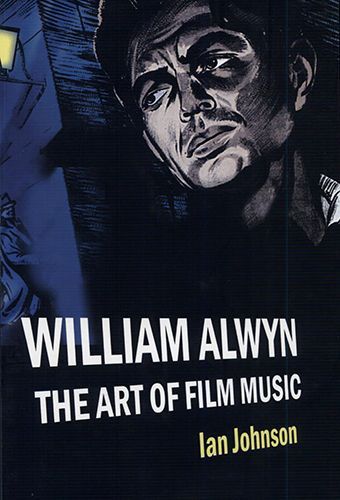
William Alwyn: The Art of Film Music
Author: Ian Johnson
Publisher: Boydell Press, 2005
In this long overdue reassessment, Alwyn's films are analysed and put into the context of his biography, the film industry, and of society at the author shows in particular this remarkably versatile composer developed a hitherto unrecognised grammar of film music which enhanced every film on which he worked. He also examines his work for war propaganda, radio, and the concert hall. The volume is enhanced by the most complete filmography, discography, and bibliography of the composer's works yet published.

James Bernard, Composer to Count Dracula
Author: David Huckvale; Ingrid Pitt (Foreword)
Publisher: McFarland & Company, 2006
Composers give a unique and powerful voice to the stories we see on the big screen. Those who work principally with one type of film may leave a unique imprint on an entire genre. James Bernard was one such composer. From 1952 to the late 1990s he was one of horror’s definitive and distinctive voices, scoring many of Hammer’s best-known films, including Dracula. This critical biography details Bernard’s life from struggle to success.

John Barry: The Man with the Midas Touch
Author: Geoff Leonard; Pete Walker; Gareth Bramley
Publisher: Redcliffe Press Ltd, 2008
In
John Barry - The Man With The Midas Touch, this astonishing 50-year career is celebrated in all its musical facets. The authors, each one an authority as well as a fan, draw not only on their own experience, but also on conversations with Barry himself and people who have known him since his formative years as performer, producer, arranger and writer. More than 300 photographs celebrate John Barry's entire career.
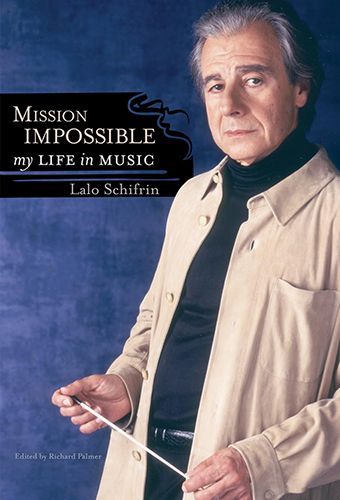
Mission Impossible: My Life in Music
Author: Lalo Schifrin
Publisher: Scarecrow Press, 2008
Organized in eight parts, the book reflects on Schifrin's cosmopolitan experience and provides impressions and vignettes of the extraordinary people with whom he worked. As a composer whose works bridge three main musical styles - jazz, classical, and film and television - his autobiography offers invaluable insights on all three genres, as well as politics, literature, and travel. This significant volume includes over 30 photos, appendixes listing Schifrin's works, and a discography, as well as an audio CD...
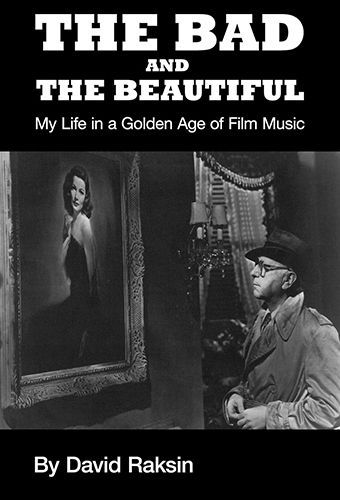
The Bad and the Beautiful: My Life in a Golden Age of Film Music
Author: David Raksin; Alex Raksin (Editor)
Publisher: Kindle Edition, 2012
The Bad and the Beautiful vividly details scores of lighthearted moments with (surprisingly) serious artists; e.g. Raksin’s work with his friend Igor Stravinksy on “Circus Polka,” a brisk and bright piece starring “Modoc, the four-ton elephant.” But the autobiography also details deadly serious battles, such as his successful political campaign to protect artists' rights by forming Composers and Lyricists Guild of America, and deeply personal disappointments, such as the 1944 “Dear John” letter from his wife that led him to write “Laura”.
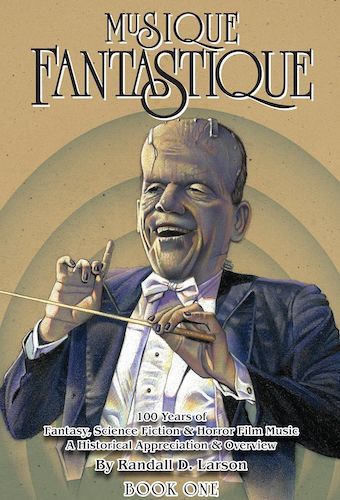
Musique Fantastique (Book One)
100 Years of Fantasy, Science Fiction & Horror Film Music A Historical Appreciation
Author: Randall D. Larson
Publisher: Creature Features, 2012
When it was published in 1985 by Scarecrow Press, Randall D. Larson’s
Musique Fantastique
was the first book-length analytical commentary of these genres of film music. Out of print, elusive, and sought after for many years,
Musique Fantastique has been regarded as a unique and important reference work for students and enthusiasts of both film music and fantastic films.
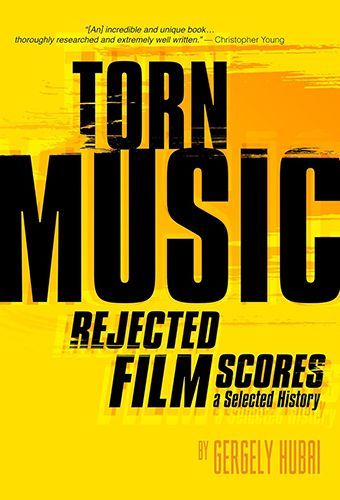
Torn Music: Rejected Film Scores, a Selected History
Author: Gergely Hubai
Publisher: Silman-James Press, 2012
In
Torn Music (which takes its title from the film Torn Curtain, whose famous score replacement put an end to the long and fruitful collaboration between director Alfred Hitchcock and composer Bernard Herrmann), film historian Gergely Hubai recounts the often strange and surprising stories behind 300 rejected and replaced scores dating from the 1930s through the 2000s. The movies discussed in Torn Music range from the most popular to the all-but-forgotten, and from high art to lowbrow fare...
Ennio Morricone: In His Own Words
Author: Alessandro De Rosa, Ennio Morricone
Publisher: Oxford University Press, USA, 2019
Ennio Morricone's scores go hand-in-hand with the idea of the Western film. Often considered the world's greatest living film composer, and most widely known for his innovative scores to The Good, the Bad, and the Ugly and the other Sergio Leone's movies, The Mission, Cinema Paradiso and more recently, The Hateful Eight, Morricone has spent the past 60 years reinventing the sound of cinema.
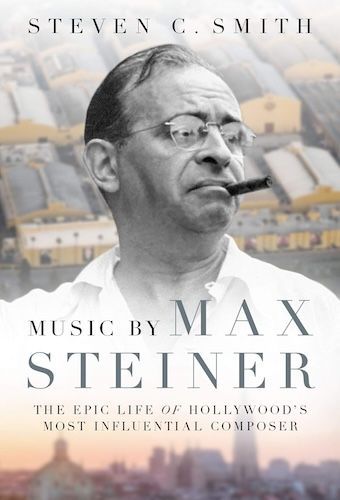
Music by Max Steiner
The Epic Life of Hollywood's Most Influential Composer
Author: Steven C. Smith
Publisher: Oxford University Press, USA, 2020
During a seven-decade career that spanned from 19th century Vienna to 1920s Broadway to the golden age of Hollywood, three-time Academy Award winner Max Steiner did more than any other composer to introduce and establish the language of film music. Born into a legendary Austrian theatrical dynasty, he became one of Hollywood's top-paid composers.
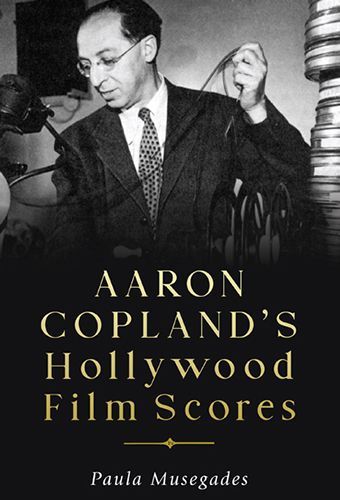
Aaron Copland's Hollywood Film Scores
Author: Paula Musegades
Publisher: University of Rochester Press, USA, 2020
Using the film medium to introduce the moviegoing public to modern musical styles, Copland challenged Hollywood's traditional uses of music in film. His innovative approaches enhanced important national themes running through these films while also contributing to Hollywood's transformation as the Great Depression gave way to wartime tribulation and, eventually, postwar prosperity and Red Scare paranoia.
Aaron Copland's Hollywood Film Scores explores Copland's scores, interviews, and lectures, tracing his legacy...
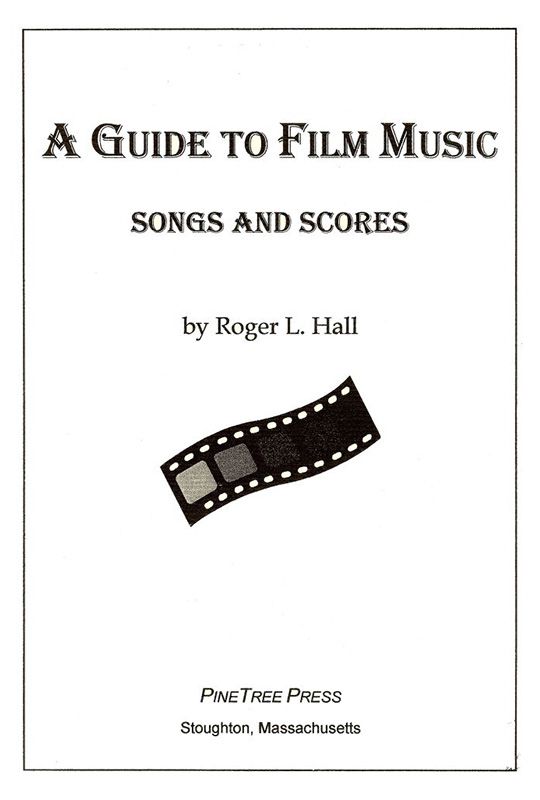
A Guide to Film Music: Songs and Scores
Author: Roger Hall
Publisher: PineTreePress, 2022 -
8th edition
The new 8th edition of the book, A Guide to Film Music: Songs and Scores, is now available in either of two formats: as the book (PDF) or on a computer disc with the book plus bonus audio and video features. More about it at the Film Music Guide page on the
American Music Preservation website.
Elmer Bernstein, Film Composer: An Authorized Biography
Author: Peter M. Bernstein
Publisher: Rowman & Littlefield Publishers, 2023
Elmer Bernstein lived a colorful life: he was a first generation American; he was blacklisted; and he was a fearless advocate for film music not afraid to take on anyone in pages of trade papers. The book looks at many of his landmark scores in depth, collaborations with various producers and directors, and his success in navigating the rough and tumble of Hollywood. This biography, written by Elmer’s son Peter, interweaves exclusive interviews, oral histories not otherwise available, estate archival materials, and personal experiences.
Henry mancini, Sound and Scores + CD
A Practical Guide to Professional Orchestration - 256 pages
Author: Henry mancini
Publisher: Alfred Music; Revised ed. edition (December 1, 1993)
A practical guide to professional orchestration featuring recorded musical examples performed by Henry Mancini. Included in the book are sections on the woodwinds, brass, the rhythm section, and the string section. A recording is included to follow along with the printed scores.
Buy.
Bernard Herrmann
A Practical Guide to Professional Orchestration - 256 pages
Author: Karol Beffa
Publisher: Actes Sud - 176 p
Cet ouvrage a pour ambition d'explorer l'univers de Bernard Herrmann (1911-1975), à qui l'on doit aussi bien les bandes-son de Citizen Kane (1941) d'Orson Welles et de Taxi Driver (1976) de Martin Scorsese que celles des plus célèbres films d'Alfred Hitchcock (Sueurs froides, La Mort aux trousses, Psychose...).
En parallèle, Herrmann a mené une carrière de chef d'orchestre et a écrit des partitions pour le concert ... Buy...


